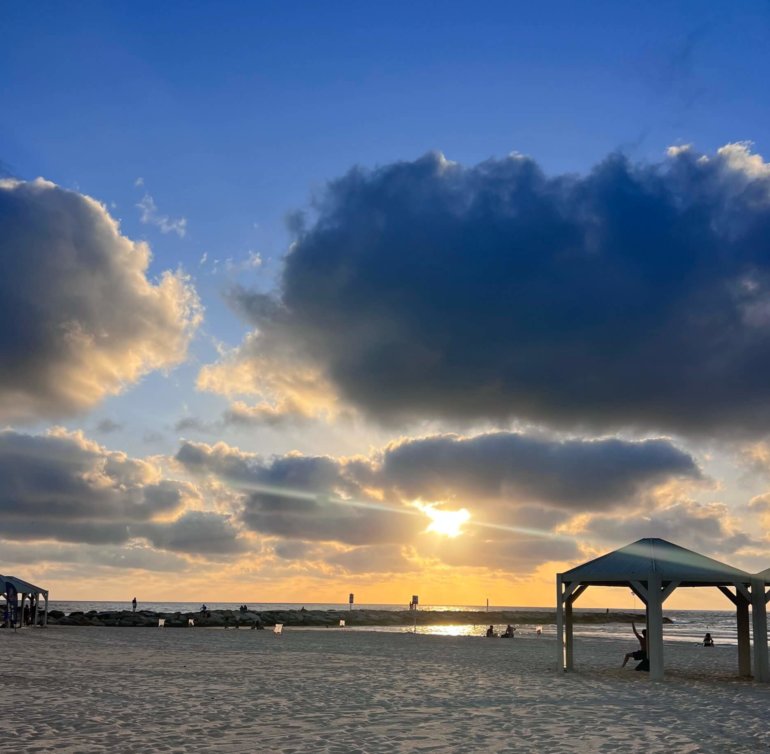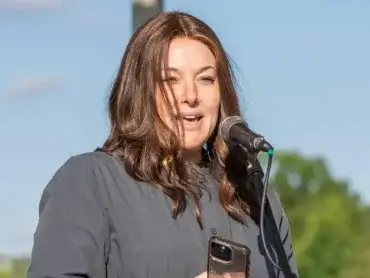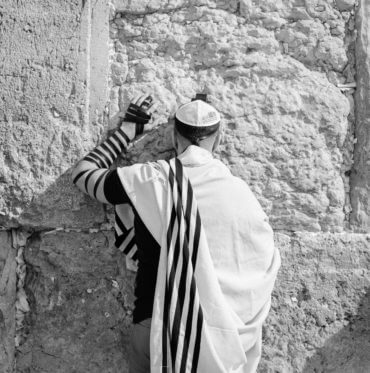
When I Got My MS Diagnosis, It Renewed My Faith in Hashem
Eighteen years ago, I sat nervously in my doctor’s office. It was a cold and sterile place. Under the fluorescent lights, as I watched the clock tick by, I felt uneasy and unable to sit still.
I came in because at age 36, while I was pregnant with my youngest daughter, I experienced strange numbness and tingling – the doctor suspected it was a stroke. After some tests, he said it was likely I had multiple sclerosis.
It was a complete shock to hear this news. I spent endless nights researching what the diagnosis would mean to me, my family, and my work.
My only relationship with MS until then was recalling how we would raise funds through high school marathons for people physically disabled and in wheelchairs. I never knew anyone who had it.
At this point in my life, I had a thriving catering business and worked 18-hour days cooking, event planning, driving trucks, and making a name for myself in my town. I was young – and I assumed I was healthy.
But on this fateful day with my doctor, I learned otherwise.
“You have MS,” he came into the room and told me, matter of factly. “You may have to use a cane. Or a wheelchair.”
I tried to envision how I would manage to maintain my very active lifestyle. I hated relying on others; I prided myself on being completely independent. Would I be able to be a mother to my five kids? Function as a wife? Or keep doing my catering business? These thoughts raced through my head.
I saw others with an MS diagnosis becoming completely bedridden at a relatively young age. I was petrified. I wallowed in self pity. I can’t say that was foreign to me. As a youngster, I sought attention and craved to be noticed. Sometimes, that meant exaggerating sickness just to be seen.
But this was real.
In those first few weeks after my diagnosis, I had a lot of alone time on my couch. I thought about my life until then. I questioned G-d and His kindness and the unfairness of it all. I was embittered because I could no longer be physically out and about. I felt old.
My diagnosis led to a financial spiral, leaving my husband and I in bankruptcy and foreclosure, in need of community help for basic living expenses, including chicken for Shabbat. We went from being the givers to becoming receivers in Monsey, and the intense pain of feeling needy was awful.
I fell into depression; deep rage brewed within, and I felt an overall sense of total despair beyond words. I asked Hashem if perhaps He got mixed up and thought my name was Iyov because the hardships didn’t stop. They were pouring down, like bullets from the sky.
I went from being an active go-getter to relying on my walker and sometimes a wheelchair, suffering from ongoing leg spasms, vertigo, body tremors, and challenges to put together a normal sentence.
My family had to take over basic household chores. It was heart wrenching for me to watch everyone buzzing around, while all I could do was watch it happen in front of my eyes.
Our mazal literally kept shutting down; it was one thing after the next until we received guidance from a gadol telling us to make aliyah. It was time to move and rebuild.
Coming to Israel was a dream come true, although I wish under different circumstances. Physically, I couldn’t do much, and emotionally, I was drained. For several months, I struggled to find a steady tile to stand on.
I started with emuna classes at a local friend’s home, which I attended week after week. I learned about Rebbe Nachman’s books on emuna, particularly the “Garden of Emuna,” and from there, I began learning from the teachings of the Holy Ba’al Shem Tov.
The next step was facing my traumas. I turned for emotional help through a rebbetzin who ran a mental health clinic. I went through intense therapy for close to a year, and that was my turning point. She used a combination of helpful techniques, one of which was energy healing.
Energy therapy is a learned technique that focuses on awakening our hidden consciousness to the core reasons behind all that we face today. I realized that my MS, like all body ailments, holds many hidden secrets my body contained – one of which was me feeling unsafe and childhood trauma. It is an intense process that familiarizes you with repeating ancestral patterns and inherited programs we have been conditioned to believe are true.
For instance, I became aware of an inherited trauma brought down four generations between mother and daughter that I was able to seize and strive to stop, so that I wouldn’t continue to pass it down.
This was the catalyst to learn the techniques behind energy healing as a modality and integrate them with the fundamental teachings of the Ba’al Shem Tov that I now witnessed as being life saving. I wanted to practice and teach them to others.
I found the perfect formula, where I combined learning Chassidic teachings with energy healing techniques. Learning that Hashem is a tangible, constant presence in our lives and loves us unconditionally changed my approach on all levels.
Now, it is so clear to me how Hashem planned everything to the “T.” At first, the idea of seeing light in the darkness of my physically crippled body seemed impossible. But I decided to enlist in emuna boot camp; I was a Jewish woman in training, seeking to find the sweet in the bitter.
Here I am today, nearly two decades later, teaching what I still strive to embody as an “emuna state of living.”
I never really embraced my middle name, Esther, until a few years ago when I learned the importance of how each Hebrew letter imparts so much light into our life, especially the letters of our name. This was significant in my healing journey since until then I was known only by Orit, which I never really liked. But my MS forced me to look at everything… including my name.
Orit is derived from the word Or, which means light in Hebrew. And Esther refers to a state of hester, hiddenness. After being diagnosed with MS (when sounded out, emes also means “truth” in Hebrew) I looked at everything in my life, and my eyes opened to new meanings: to seek out the hidden sparks of light embedded in life and illuminate them to as many as I can. Essentially, I went from feeding the body in my catering business to feeding the soul.
I initially fought through the healing journey, refusing to see anything good or this being for the good. Secretly, I often still do, but I’m getting better at noticing and preparing for the regular emuna battles.
I am far from healed, even though today I can physically walk without a cane, scooter, or wheelchair. I now focus my daily efforts on helping women and men heal from their various ailments and travel globally to educate audiences and energize their emuna. It is my greatest yearning to inspire others with proven life messages of hope, love and unity. I appreciate the fact that I can walk without aid.
If I didn’t have Hashem in my life – and didn’t recognize His eternal love – I don’t believe I would be in the shape I am in right now. In the merit of my own pain, I am emerging to become a wounded healer, one who can help others see their inner truths as I continue to seek out mine.
Every day, I say the following to myself, and I recommend to others as well: “I love You Hashem. I really really do. I know You are endlessly benevolent and kind in ways I cannot fathom. Yes, often I cannot understand Your ways. But Jewish heritage and my own life has proven to me that I don’t have to ‘get it.’ With regular emuna reminders, I am finding You and embracing Your endless love.”
I pray to devote my life to spreading Hashem’s emes to my family, my students, and anyone who yearns to find purpose through challenges, because there is. There is so much more than the pain that surrounds the hardship.
We can find this by having emuna – no matter what.
If you found this content meaningful and want to help further our mission through our Keter, Makom, and Tikun branches, please consider becoming a Change Maker today.








1 comment
Sort by
I was living with MS for years before being officially diagnosed in 2021. I got annual MRIs, and I did not take any meds due to side effects. I had one flare up in 2021. My legs decided to a break, and I was numb from the waist down. I decided to try MS-4 from Uine Health Centre. The numbness and Muscle spasms went away after a couple of weeks, but it took almost 3 months to walk properly without a cane. In June, it will be four years without incident, and I am extremely happy that I made the decision to not take any meds and went for the MS-4 formula even though my neurologist got upset and one told me to quit my job because I will be disabled. Well, I am not disabled, I still refuse to take those meds, and I am doing just fine. Believe in yourself and go with your instincts. Doctors don’t know it all. I’m surprised a lot of people with MS haven’t heard of the MS-4 protocol, I got the treatment from uine healthcentre . co m I am absolutely confident that this protocol offers a viable solution. I hope you find it helpful.